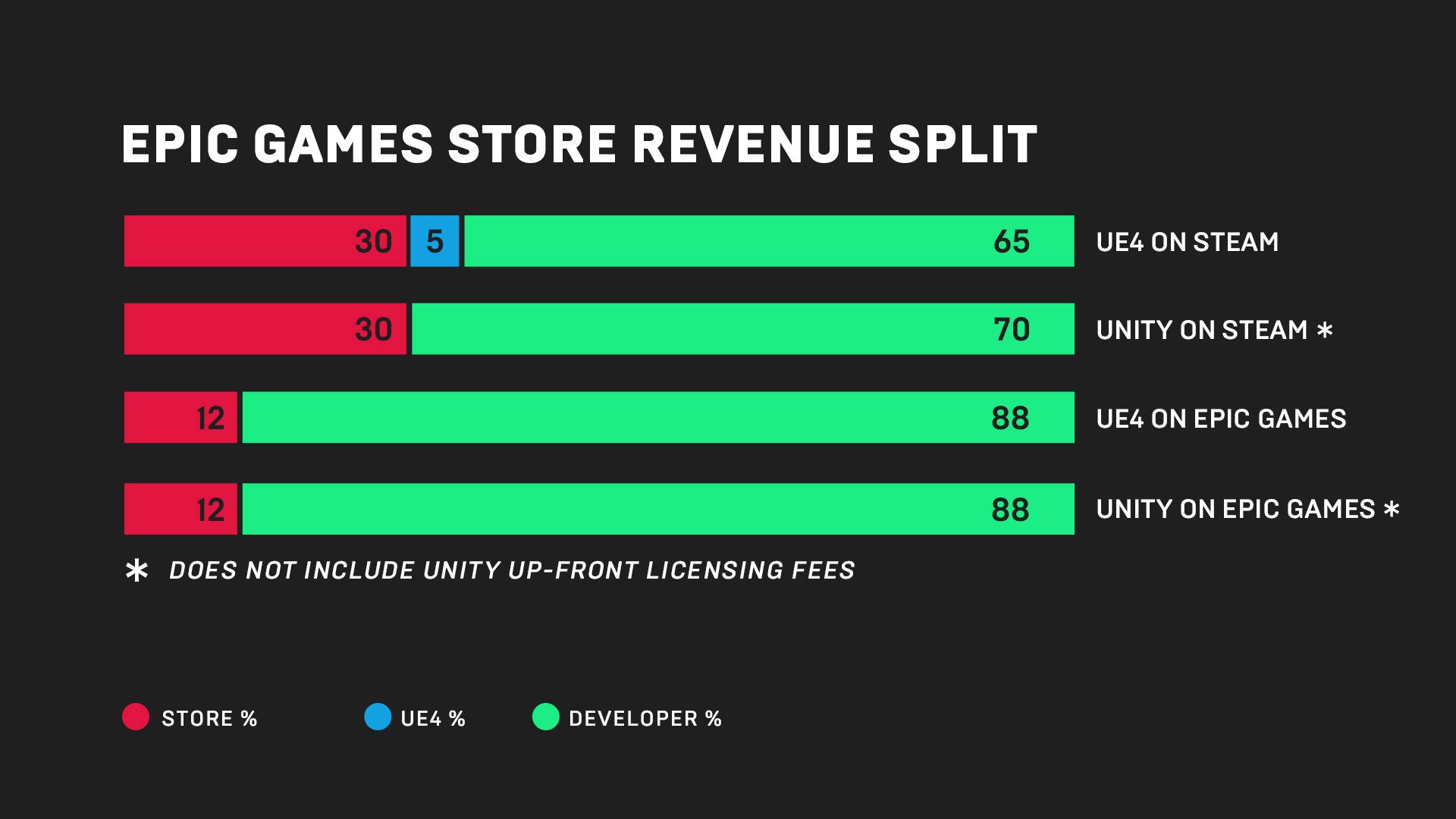Steam is widely considered the de facto platform for PC games, VR or otherwise, but Unreal Engine creators Epic Games want change that with a new storefront that they say will leave more revenue to developers than Steam and other major digital distribution platforms.
Update (12:20 PM ET): Tim Sweeney has confirmed in a Game Informer interview that VR games will have a home on the platform, although the store “doesn’t have any sort of VR user interface.”
Both Steam and the Oculus Store take an industry standard cut of 30% of a game’s revenue, although Epic CEO Tim Sweeney today announced in a blogpost that the company would soon be creating their own dedicated storefront that will only take a 12% slice of the pie; that includes games created with Epic’s Unreal Engine 4, Unity, and other game engines.
Fittingly dubbed ‘Epic Games Store’, the distribution platform will likely take the place of the Epic Games launcher on PC and Mac, which most famously features battle royale sensation Fortnite and the Unreal Engine itself.

There wasn’t a specific announce surrounding support for VR games (see update), although as Khronos Group’s OpenXR standard marches ever onward in its mission to make market fragmentation a thing of the past, it’s possible those “open platforms” will also include VR. Epic Games is a prominent member of the Khronos Group working alongside a host of industry pros including Oculus, HTC, Valve, Microsoft, Google, AMD, NVIDIA, and Unity.
Epic Games Store is said to launch soon and begin what Sweeney calls “a long journey to advance the cause of all developers.” The store will first launch with a set of games curated by Epic for PC and Mac, and then allow other games and “open platforms” throughout 2019.
Content creators like YouTubers can also take part in what the company calls ‘Support-A-Creator’, an opt-in program that provides revenue-sharing kickbacks to creators who refer players to buy a game on the Epic Games Store. Developers can set a specific percentage shared to content creators, although Epic intends to cover the first 5% of creator revenue-sharing for the first 24 months.
“We’ve built this store and its economic model so that Epic’s interests are aligned with your interests,” explains Sweeney, talking directly to developers. “Because of the high volume of Fortnite transactions, we can process store payments, serve bandwidth, and support customers very efficiently. From Epic’s 12% store fee, we’ll have a profitable business we’ll grow and reinvest in for years to come!”
Sweeney says more details (and launch games) for Epic Games Store will be revealed at The Game Awards this Thursday, December 6th.







